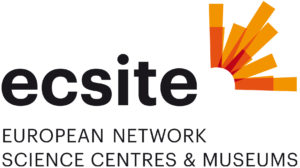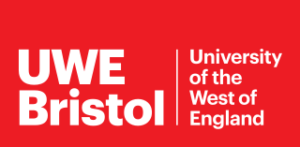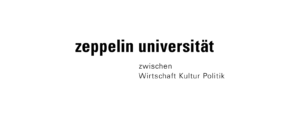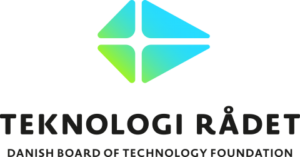The consortium research expertise is well spread across different areas of the science communication ecosystem: media, science and politics and the interfaces between science and society as well as the understanding of innovation processes. All of the partners and third parties are involved in science communication training to various target groups including journalists, would be science communicators, scientists and other relevant stakeholders.
The Athena Institute is a research department at Vrije Universiteit’s Faculty of Science. Athena Institute specifically studies and designs interfaces between science and society to contribute to academic and societal understanding of key factors in innovation processes, and enriching science with increased societal legitimacy and improved research utilization in a wide variety of societal sectors, such as health, agriculture, environment and energy. The institute has acquired much expertise in methodology development to realize the meaningful exchange of knowledge and expertise between scientific and non-scientific groups and the reflexive monitoring and analysis of such processes.
Coordinator of RETHINK, leader of WPs 2 (sensemaking practices) and 7 (project management). The Athena Institute has extensive expertise and experience in the study of framing and sense-making processes, the design and facilitation of reflection and dialogue processes, and the monitoring of reflective learning in action.
Ecsite, the European Network for Science Centres & Museums, is the only Europe-wide network organization that links science centres and museums, natural history museums, zoos, aquariums, universities and research organizations in Europe as active members. The common thread uniting these institutions is a commitment to public engagement, communicating science through accessible, interactive exhibits and programmes. Ecsite counts 400 member institutions located in 30 different European countries. It facilitates co-operation among Europe’s science centres and museums – establishing standards, sharing expertise, disseminating best practice, encouraging collaboration and developing training programmes.
Primary contact and coordinator via its Linked Third Party activities, Ecsite is the WP4 lead (transdisciplinary rethinkerspaces and European sounding board). It will be in charge of the Rethinkerspaces as well as of the European Sounding Board. Ecsite will also contribute to the trainings and to connecting its community to the project.
The University of the West of England (UWE) is the largest provider of Higher Education in the South West with just under 30,000 students, and makes a major contribution to the social and economic development of Bristol and the surrounding region. UWE’s outstanding learning is backed by renowned, world-class research, generating solutions across regional and global agendas, whether that be in the development of robotic tools to help push forward healthcare boundaries, helping people adjust to facial disfigurement, or assisting to develop new diagnostic tests for cancer – UWE works in partnership with users to ensure it is at the cutting edge.
The Science Communication Unit (SCU) is a Centre of Excellence within UWE and branches two UWE faculties, the Faculty of Health and Applied Sciences and the Faculty of Environment and Technology. The Mission of the Unit is to engage with a wide-range of publics, connect them to and engage them in contemporary academic research across a range of disciplines, using innovative, thoughtful and ethical best-practice approaches with fully-evaluated outcomes and reflective feedback to the science communication community. Within RETHINK, UWE’s SCU Unit is in charge of WP1, mapping the current science communication ecosystem and its actors.
Zeppelin University (ZU) is a state-recognized private research university in Friedrichshafen, Germany, bridging business, culture and politics. ZU defines itself as a provider of individualized, international and interdisciplinary education for future decision-makers and creative innovators in the fields of business and economics, culture and communication as well as political and social sciences. At the same time, ZU is dedicated to facilitating high-impact research exploring issues in disciplinary and interdisciplinary basic and applied research.
Within RETHINK Zeppelin University (ZU) leads WP3 which is dedicated to science communication education. In this context, ZU’s expertise in the field of both academic education at bachelor and master level but also at the level of professional/further education will contribute to the developments of the tasks outlined in the Work Package.
SISSA Medialab, the in-house company of the International School for Advanced Studies (SISSA) has been active in the field of science communication for thirteen years. Collaborating with a network of thousands of scientists around the world, its communication is targeted both at the general public, from small children to adults, and to the scientific community. As part of its commitment to deliver efficient communication strategies to the ever-changing and complex scientific world, SISSA Medialab has also been involved in various European projects aimed at designing innovative science communication programmes.
SISSA Medialab leads the WP6 (communication and dissemination). SISSA Medialab will also contribute to exploiting the potential of the international community of science communication researchers and practitioners which actively follows JCOM, the Journal of Science Communication. The creation of a specific community page within JCOM will allow for the sharing, testing and collecting of feedback on project outcomes from JCOM visitors, authors and readers, with a fully open access approach.
The DBT is an independent, non-profit, common good, corporative foundation SME, committed to technology assessment, foresight, knowledge-based decision-making, parliamentary advisory activities on science, technology and innovation, collaborative democracy and methodological research. The DBT works with a local, regional, national, as well as international perspective. It is specialised into interactive methodologies, involving trans-disciplinary research, stakeholder involvement, citizen participation, political deliberation and advice, and public communication. Especially in the domain of stakeholder and citizen consultation, connected to policy analysis, the DBT aims at being at the forefront of praxis.
Within RETHINK the DBT leads WP5 which is dedicated to providing recommendations and guidelines for how to improve the quantity, quality and relevance of science communication, targeted to practitioners, policy-makers and funders, and scientists.
THIRD PARTIES
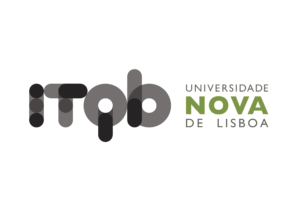
The Instituto de Tecnologia Química e Biológica António Xavier (ITQB NOVA) is an academic research centre of the Universidade Nova de Lisboa. Its mission is to carry out scientific research and postgraduate teaching in life sciences, chemistry and associated technologies, for the benefit of human health and the environment, while also serving the community and promoting science and technology. The strong expertise in Molecular Biosciences present at ITQB NOVA drives research in two strategic societal challenges, focused on the well-being of human societies (Molecular Basis of Health and Disease) and on the environment (Biological Resources and Sustainable Development). Currently with 60 independent teams, ITQB NOVA hosts more than 400 researchers with different backgrounds and research interests, who contribute to the vibrant scientific atmosphere on site. Education at ITQB NOVA is centered on Advanced Studies, mostly at the level of Master and PhD programs. On average, 40 PhD students graduate from ITQB NOVA each year. All ITQB NOVA PhD students have formal training in Science Communication and ITQB NOVA is also coordinating the Master in Science Communication, in collaboration with Faculty of Social Sciences and Humanities also from Universidade Nova de Lisboa. ITQB NOVA Science Communication Office, established in 2005, has been coordinating outreach and SciCom training activities, promoting the active participation of researchers in science and society initiatives.
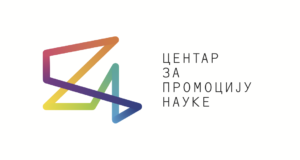
Center for the Promotion of Science in Serbia is a public institution established by the Law on Scientific Research in 2010 with the task to promote science and technology. The Center, according to its mandate, cooperates with research and educational institutions (universities, research centers and schools) in Serbia and worldwide, works closely with the government ministries as well as the media and the private sector. The Center organizes a large number of exhibitions, lectures, panel discussions and other events on different topics (mathematics, physics, robotics, archeology, psychology, genetics, biology, architecture etc.). Several large manifestations are organized by the CPN: “May Month of Mathematics”, “Days of the Future: Robotics” and the CERN exhibition in Serbia are just some of the most prestigious examples. More than 450,000 visitors attended these exhibitions. Central for the exhibitions and other formats is always the claim to design them in an interactive way, so visitors can play an active part in it. A large number of trained science demonstrators and volunteers support these events. Additionally, the CPN financially and logistically supports science promotion projects of its external partners. Also, CPN organized several summer and winter camps for children of different ages. The Center’s mission is to bridge the gap between science and society by bringing together researchers, educators, policy makers, civil society organizations, business and industry and the general public in the process of research and innovation. The ultimate aim is to influence and adapt the general research agendas to reflect the needs of the society and to address societal challenges engaging all actors involved in the process. Through numerous activities on the regional and national level the Center is promoting the idea of Responsible Research and Innovation through concrete actions. A crucial example is its effort in promoting gender equality in research and technology, such as motivating girls to study science or organizing coding classes for girls. The integration of society in research processes is another of the big concerns of the CPS. Its activities include organizing debates on intriguing questions related to societal challenges of today and tomorrow and conducting workshops and other events with the aim of bringing science closer to all citizens and increasing the level of science literacy among the general public and especially the young generation.

VA (Public & Science) is a Swedish non-profit membership organisation that works to promote dialogue and openness between researchers and the public.
We, along with many others, believe that dialogue is a cornerstone of a democratic society and key to solving the societal challenges that we face.
VA’s members consist of some 90 organisations, authorities, universities, companies and associations. In addition, it has a number of individual members. The organisation was founded in January 2002 and is funded through membership fees, project grants and a grant from the Swedish Ministry of Education and Research.

Copernicus Science Centre conducts modern science communication through interactive exhibitions addressed to different groups (adults, adolescents and children), shows and workshops on scientific themes, debates and discussions as well as activities from the borderland of science and art. The mission of the Centre is to encourage personal engagement in discovering and understanding the world, as well as taking responsibility for the changes occurring around us. Copernicus Science Centre covers 20,000 m2 and houses six expositions, a planetarium, a Robotic Theatre, a Discovery Park and four laboratories. In 2016 Copernicus science centre was also granted a status of a research unit. The sociologists, psychologists and anthropologists from the Research Department of the Copernicus Science Centre analyse how visitors explore exhibitions, use exhibits and take part in workshops. This gives us a unique insight into the role of a science centre in the development and learning of people of all ages and backgrounds.


